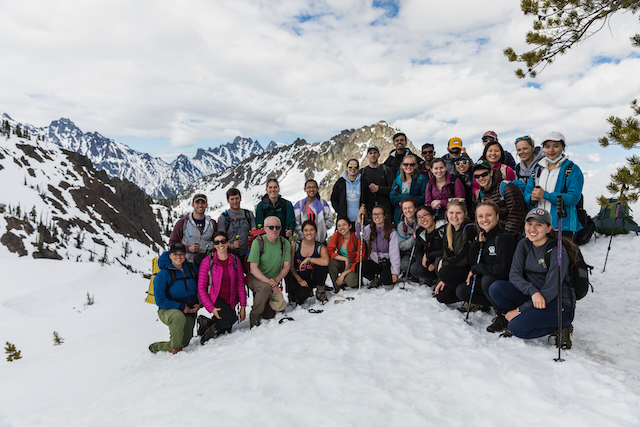Filter by:
A message from Dan Brown, SEFS Director: Spring 2025
We are well into 2025 and while there are moments when the future feels uncertain, the importance of our work here at SEFS and the broader scientific community is not. Our work and our commitment to our mission and values has not diminished in any way.
Read moreIs there room for large carnivores like grizzly bears to live in California? Research suggests that the answer is yes
SEFS Assistant Professor Alex McInturff runs the People and Wildlife Lab here at the University of Washington. His most recent research published in Biological Conservation suggests that even in a state with 40 million people and the nation’s largest agricultural sector there is room for the grizzly.
Read moreYakama Nation Tribal Council and SEFS leadership meet to discuss the continued support of students in earth sciences, fisheries and environmental science
In the beginning of 2025, SEFS Director Dan Brown met with Polly Rigdon from the Yakama Nation Tribal Council. Rigdon teaches a class called, “Role of Culture and Place in Natural Resource Stewardship: The Yakama Nation Experience.” Rigdon leads UW students and faculty onto the closed portion of the reservation to learn about natural resource stewardship by the Yakama Nation.
Read moreSEFS remembers one of its oldest friends Carolyn Scott
Carolyn S. R. B. Scott (1921-2025)
The School of Environmental and Forest Sciences has lost one of its oldest friends, Carolyn Scott. She died peacefully at home on Sunday, February 2, 2025, surrounded by family.
Read moreONRC and others awarded $4.2 million grant to advance indigenous forestry resource industrial development in Port Angeles, Washington
In January the U.S. Secretary of Commerce Gina Raimondo announced that a $4.2 million grant will be awarded to the Clallam County Economic Development Council in Port Angeles, Washington. The grant will be used to advance indigenous forestry resource development in the region.
Read moreSEFS remembers College of Forestry Professor Emeritus Reinhard F. Stettler
We are saddened to share the news that Professor Emeritus Reinhard (Reini) Stettler passed on December 9, 2024. He was 94. Professor Emeritus Stettler was hired in 1963 as an Assistant Professor in the University of Washington’s College of Forestry, now the School of Environmental and Forest Sciences.
Read morePhD student Sam Kreling’s research looks to better understand the consequences of urbanization on the adaptive evolution of coyotes
Kreling’s newest research looks at how our rapidly urbanizing world may influence the evolution of coyotes, the most prominent urban carnivore. Her research conceptualizes a framework that she hopes others will use to better understand the various pathways by which urbanization can influence the genomes of wildlife by using the coyote as a model for understanding urbanization’s effects.
Read moreA Message from Clare Ryan, SEFS Acting Director: Winter 2024-25
As my time as SEFS Acting Director draws to a close I’m reflecting on the many successes that the SEFS community has achieved over the last quarter. Our faculty and students have been hard at work building a greater depth of understanding around our environmental systems.
Read moreThe Impact of Giving – A SEFS Donor Spotlight Series: Tom and Arline Hinckley
This is the first donor spotlight in a series. This series of stories reveals the impact that donors have on students, faculty and research here at the School of Environmental and Forest Sciences and more broadly at the College of the Environment.
Read moreAssociate Professor Brian Harvey awarded three grants to examine how climate-adaptive forest management can foster resilience to wildfire
Associate Professor Brian Harvey and the UW Harvey Lab have three new exciting grant-backed projects in the works. The lab will be looking at how climate-adaptive forest management can foster resilience to wildfire.
Read more



